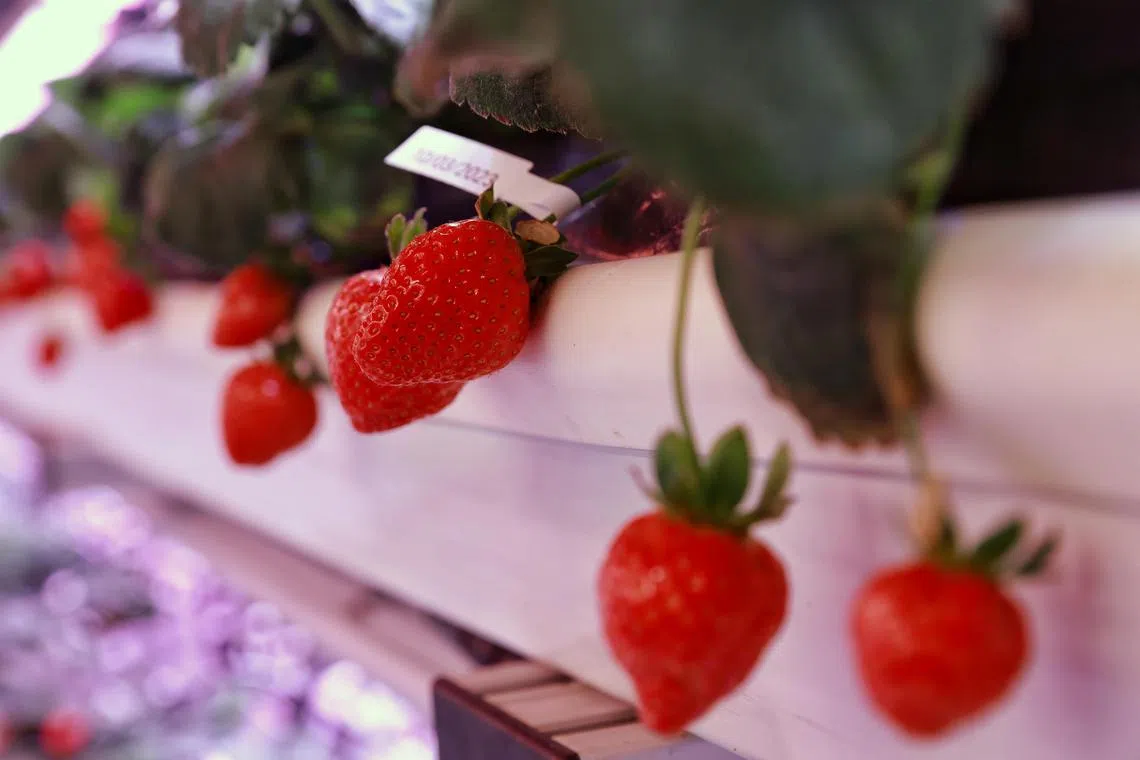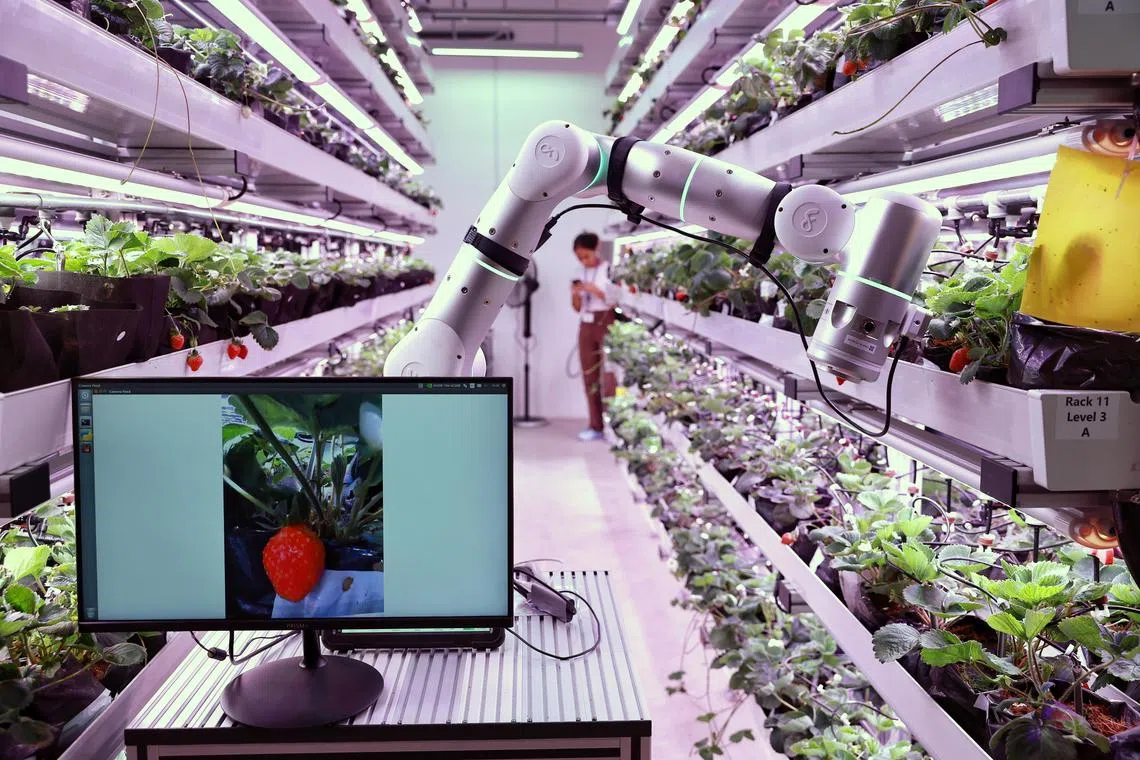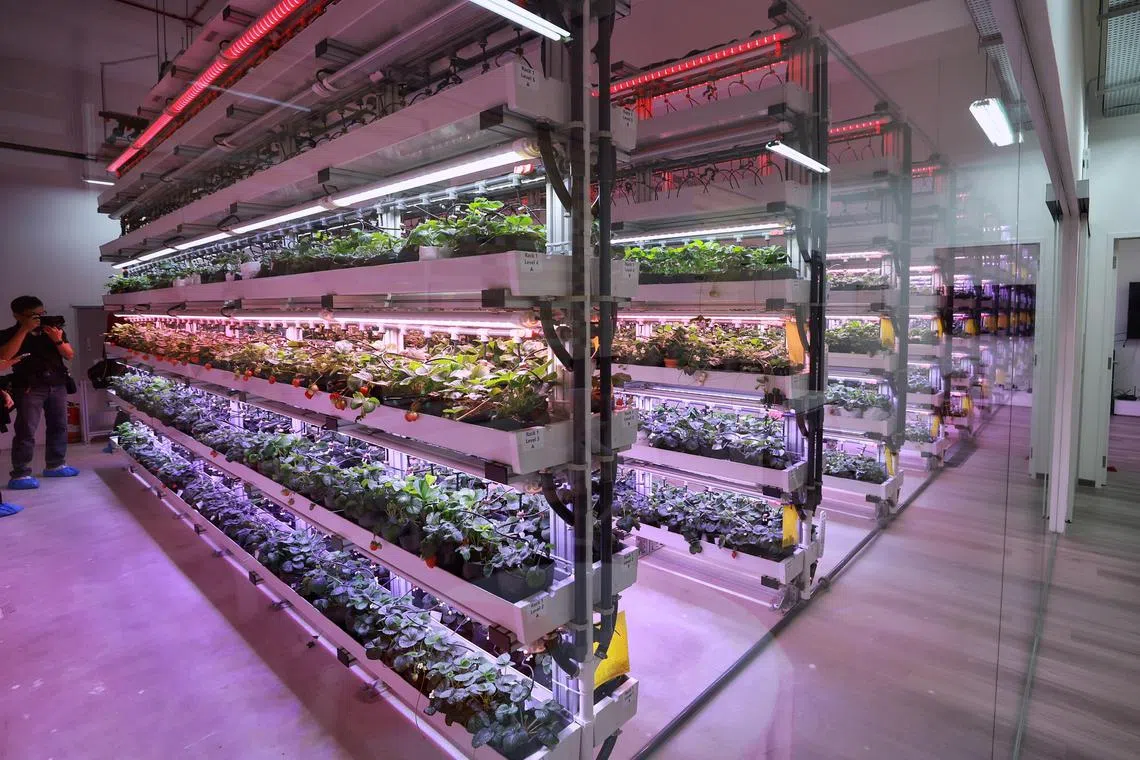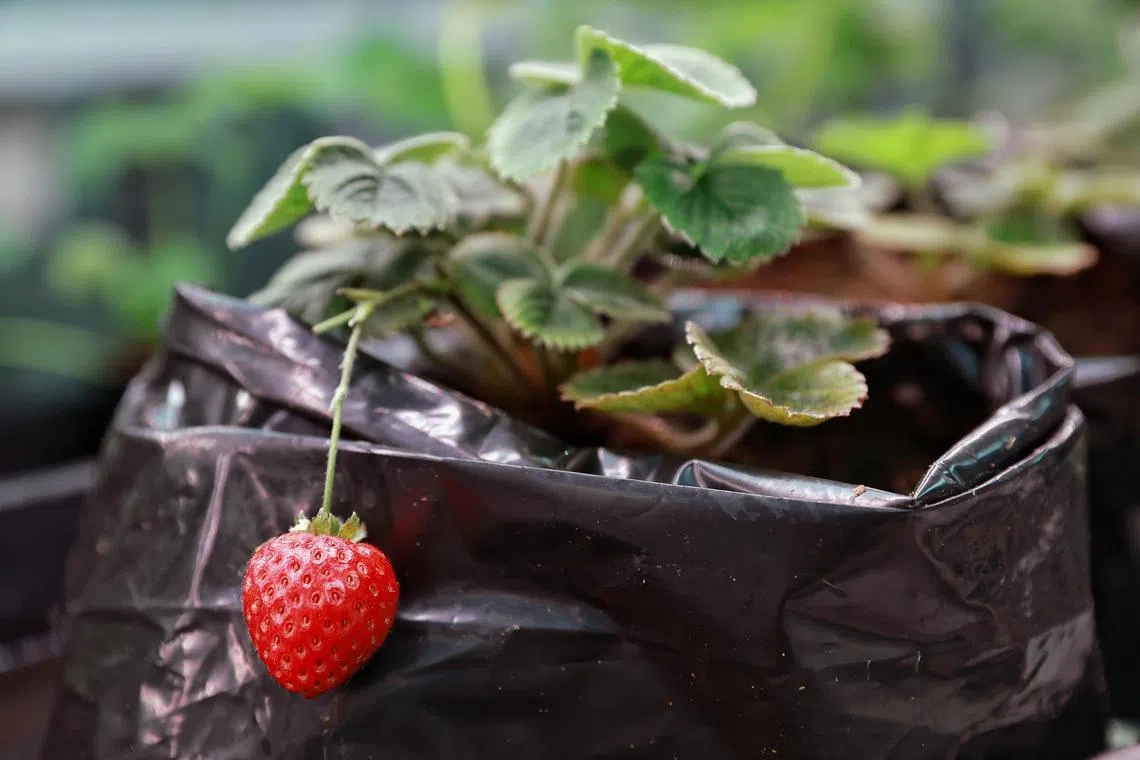S’pore firm to grow strawberries in farms in Malaysia and Thailand
Sign up now: Get ST's newsletters delivered to your inbox

Strawberries grown in Singrow’s new agri-genomics farm in Science Park Drive on April 11, 2023.
ST PHOTO: KEVIN LIM
Follow topic:
SINGAPORE - Singrow, the Singapore firm behind strawberries that can be grown in tropical climates, has made plans to co-develop farmlands in Malaysia and Thailand, with some as large as 56 sq km – four times the size of Ang Mo Kio estate.
Such agreements will allow Singrow to increase the production volume of its strawberries by at least 100 times, and under franchise contracts, a proportion will be shipped exclusively to Singapore. This will provide the Republic with a year-long supply of high quality, typically seasonal fruit at prices comparable with those traditionally farm-grown around the world.
Singrow said that presently, the price, quality and size of its fruit is comparable with those shipped from Japan or South Korea that retail at between $25 and $50 per pack of nine to 12 luxury strawberries. With its expansion plans in place, the firm hopes to eventually bring down the price of strawberries to around $12 to $15 per pack.
Additionally, Singrow said it will be able to grow the strawberries free of pesticides and fertiliser.
While the exact proportion of fruit from these regional farms reserved for Singapore markets is still under discussion, Singrow chief executive Bao Shengjie said its plans will “definitely” contribute to the Republic’s ambition for food independence.
Dr Bao, who is also the firm’s chief scientist, said: “With only 1 per cent of Singapore’s land mass being set aside for farming purposes and with limited sources, the local agriculture industry needs to look at new ways to boost food production... And that’s how Singrow’s technology is relevant for our current times.”
The firm’s plans were unveiled at the launch of Singrow’s Research and Development (R&D) farm in Science Park Drive on Tuesday. Measuring about 300 sq m, the farm is expected to harvest around 500kg of produce monthly.
The R&D lab will also focus on producing novel crop varieties to be grown in farms around the world.
An example is a high-yield, drought-resistant variant of rice which can be grown and harvested in two months compared with the usual five to six months.
Other crop varieties include climate-resistant blueberries, grapes and maize, which – like the strawberries – have been selectively bred over several generations for the ability to grow in tropical temperatures.

A robotic phenotyping system, which monitors and tracks the growth of strawberries, at Singrow’s new agri-genomics strawberry farm on April 11, 2023.
ST PHOTO: KEVIN LIM
Singrow expects these newly developed crops to also be grown in the newly franchised farms in Thailand and Malaysia, and eventually make their way back to the Singapore market.
The R&D lab will also serve as a testing facility for automated agricultural technologies, such as robots that can move around the room and evaluate the health of plants using cameras, and sensors that can monitor the health of a plant based off the chemicals being emitted by the plants at any point of their growth cycle.
Minister of State for Trade and Industry Alvin Tan, who was the guest of honour at the event, said that the Government will continue to support agri-tech firms like Singrow in their financing and expansion needs.

Singrow’s new facility will also serve as a testing facility for automated agricultural technologies.
ST PHOTO: KEVIN LIM
In 2021, it launched a $60 million Agri-Food Cluster Transformation Fund to help farmers better harness technology in local food production.
Administered by the Singapore Food Agency, an agency under the Ministry of Sustainability and the Environment, the fund supports agri-tech firms in their efforts to boost yields and increase production capabilities within smaller farming areas.
An example of a firm supported by this initiative is Eco-Ark, a high-tech fish farm off the Changi coast that The Straits Times reported can produce 20 times more output than the average of other coastal fish farms.

A mother strawberry plant in Singrow’s nursery in Science Park Drive.
ST PHOTO: KEVIN LIM
Mr Tan said: “Given our limited land, our farms need to make the most of our agri-spaces... (I’m) pleased to note that Singrow uses advanced agri-genomics tech to improve crop nutrition and yield... This tech presents a significant opportunity for the agriculture industry, as it can be applied to other crop segments such as rice, corn, sustainable palm oil and other staple vegetables.”
He added: “(We) hope that Singrow’s example will inspire others to dream big and cross new frontiers. We want to grow our agri-tech industry into a major growth engine here, with government support.”

